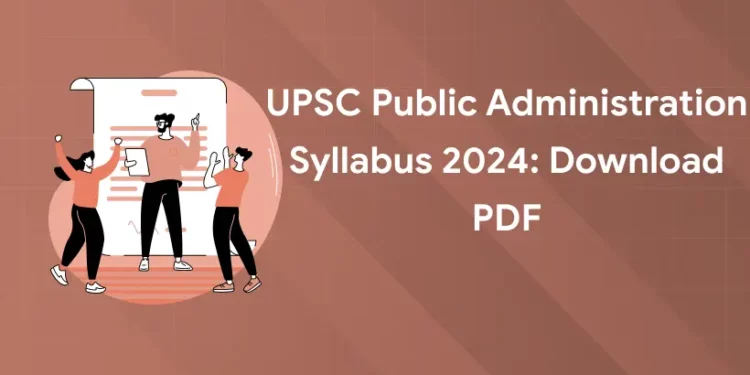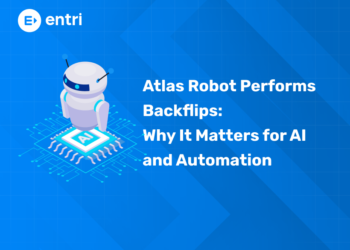Table of Contents
The optional subjects available in the UPSC main exam are questions on the role of the government in public administration courses. In terms of difficulty, Civil Service is considered to be one of the ten toughest subjects in the UPSC exam. Due to the comprehensiveness of the public administration curriculum, a large number of students chose it as an optional subject on the exam.
The UPSC Civil Services syllabus consists of Optional Papers Paper I and Paper II as part of the main part of the IAS exam, with a total of 9 papers Below we have discussed the Public Administration selection of comprehensive syllabus for the main exam.
UPSC Public Services Syllabus
The UPSC Public Administration course is ideal for those individuals who have special knowledge and interest in the subject, as it is the course of choice for the main UPSC exam. The optional subjects in the UPSC exam include Public Administration, which asks questions on how the state government is run. Various books readily available in the market can be used by students to prepare for the UPSC Public Administration course.
Students are required to answer five of the eight questions provided, with one of the last three being a mandatory question. A strong performance in the civil service selection test can significantly increase the overall score of an IAS candidate in UPSC Mains.
Prepare for Competitive Exams! Download Entri App
UPSC Public Administration Syllabus 2024 Download PDF
Candidates who want to appear for UPSC Public Service mains Examination can download UPSC Public Service Syllabus PDF Here. Click on the link below to download UPSC Public Administration Syllabus,
Syllabus of Public Administration Paper – I
1: Which one of the following is not a Harappan site?
Administration Theory
- Introduction: Meaning, scope, and significance of Public Administration, Wilson’s vision of Public Administration, Evolution of the discipline, and its present status. New Public Administration, Public Choice approach; Challenges of liberalization, Privatisation, Globalisation; Good Governance: concept and application; New Public Management.
- Administrative Thought: Scientific Management and Scientific Management movement; Classical Theory; Weber’s bureaucratic model its critique and post-Weberian Developments; Dynamic Administration (Mary Parker Follett); Human Relations School (Elton Mayo and others); Functions of the Executive (C.I. Barnard); Simon’s decision-making theory; Participative Management (R. Likert, C. Argyris, D. McGregor.)
- Administrative Behaviour: Process and techniques of decision-making; Communication; Morale; Motivation Theories content, process and contemporary; Theories of Leadership: Traditional and Modern.
- Organisations: Theories systems, contingency; Structure and forms: Ministries and Departments, Corporations, Companies; Boards and Commissions; Ad hoc, and advisory bodies; Headquarters and Field relationships; Regulatory Authorities; Public-Private Partnerships.
- Accountability and Control: Concepts of accountability and control; Legislative, Executive, and Judicial control over administration; Citizen and Administration; Role of media, interest groups, voluntary organizations; Civil society; Citizen’s Charters; Right to Information; Social audit.
- Administrative Law: Meaning, scope, and significance; Dicey on Administrative law; Delegated legislation; Administrative Tribunals.
- Comparative Public Administration: Historical and sociological factors affecting administrative systems; Administration and politics in different countries; Current status of Comparative Public Administration; Ecology and administration; Riggsian models and their critique.
- Development Dynamics: Concept of development; Changing profile of development administration; ‘Anti-development thesis’; Bureaucracy and development; Strong state versus the market debate; Impact of liberalisation on administration in developing countries; Women and development the self-help group movement.
- Personnel Administration: Importance of human resource development; Recruitment, training, career advancement, position classification, discipline, performance appraisal, promotion, Pay and service conditions; employer-employee relations, grievance redressal mechanism; Code of conduct; Administrative ethics.
- Public Policy: Models of policy-making and their critique; Processes of conceptualisation, planning, implementation, monitoring, evaluation and review, and their limitations; State theories and public policy formulation.
- Techniques of Administrative Improvement: Organisation and methods, Work study and work management; e-governance and information technology; Management aid tools like network analysis, MIS, PERT, CPM.
- Financial Administration: Monetary and fiscal policies: Public borrowings and public debt Budgets types and forms; Budgetary process; Financial accountability; Accounts and audit.
Prepare for Competitive Exams! Download Entri App
Syllabus of Public Administration Paper – II
Indian Administration
- Evolution of Indian Administration: Kautilya Arthashastra; Mughal administration; Legacy of British rule in politics and administration Indianization of Public services, revenue administration, district Administration, local self Government.
- Philosophical and Constitutional framework of Government: Salient features and value premises; Constitutionalism; Political culture; Bureaucracy and democracy; Bureaucracy and development.
- Public Sector Undertakings: Public sector in modern India; Forms of Public Sector Undertakings; Problems of autonomy, accountability and control; Impact of liberalization and privatization.
- Union Government and Administration: Executive, Parliament, Judiciary-structure, functions, work processes; Recent trends; Intragovernmental relations; Cabinet Secretariat; Prime Minister’s Office; Central Secretariat; Ministries and Departments; Boards; Commissions; Attached offices; Field organizations.
- Plans and Priorities: Machinery of planning; Role, composition and functions of the Planning Commission and the National Development Council; ‘Indicative’ planning; Process of plan formulation at Union and State levels; Constitutional Amendments (1992) and decentralized planning for economic development and social justice.
- State Government and Administration: Union-State administrative, legislative and financial relations; Role of the Finance Commission; Governor; Chief Minister; Council of Ministers; Chief Secretary; State Secretariat; Directorates.
- District Administration since Independence: Changing role of the Collector; Union-State-local relations; Imperatives of development management and law and order administration; District administration and democratic decentralization.
- Civil Services: Constitutional position; Structure, recruitment, training, and capacity building; Good governance initiatives; Code of conduct and discipline; Staff associations; Political rights; Grievance redressal mechanism; Civil service neutrality; Civil service activism.
- Financial Management: Budget as a political instrument; Parliamentary control of public expenditure; Role of finance ministry in the monetary and fiscal area; Accounting techniques; Audit; Role of Controller General of Accounts and Comptroller and Auditor General of India.
- Administrative Reforms since Independence: Major concerns; Important Committees and Commissions; Reforms in financial management and human resource development; Problems of implementation.
- Rural Development: Institutions and agencies since independence; Rural development programmes: foci and strategies; Decentralization and Panchayati Raj; 73rd Constitutional amendment.
- Urban Local Government: Municipal governance: main features, structures, finance and problem areas; 74th Constitutional Amendment; Global-local debate; New localism; Development dynamics, politics and administration with special reference to city management.
- Law and Order Administration: British legacy; National Police Commission; Investigative agencies; Role of Central and State Agencies including paramilitary forces in maintenance of law and order and countering insurgency and terrorism; Criminalisation of politics and administration; Police-public relations; Reforms in Police.
- Significant issues in Indian Administration: Values in public service; Regulatory Commissions; National Human Rights Commission; Problems of administration in coalition regimes; Citizen administration interface; Corruption and administration; Disaster management.
How Public Administration Syllabus Benefits in GS Paper?
The syllabus of Public Administration overlaps significantly with topics in the GS papers, particularly GS Paper 2 (Polity, Governance, International Relations). This can help in comprehensive preparation and scoring well in both optional and GS papers.
| Paper 01 | – | Paper 02 | – |
| 1. Introduction | No Overlapping | 1. Evolution of Indian ADM | No Overlapping |
| 2. Administrative Thought | No Overlapping | 2. Constitutional Framework | Polity |
| 3. Administrative Behavior | No Overlapping | 3. Public Sector Undertakings | Economics |
| 4. Organizations | Polity | 4. Union Government and ADM | Polity |
| 5. Accountability and Control | Polity & Ethics | 5. Plans and Priorities | Economics |
| 6. Administrative Law | Polity | 6. State Government
and ADM |
Polity |
| 7. Comparative Public Admin | No Overlapping | 7. District
Administration |
No Overlapping |
| 8. Development Dynamics | No Overlapping | 8. Civil Services | Ethics |
| 9. Personnel Administration | Ethics | 9. Financial
Management |
Economics |
| 10. Public Policy | Polity | 10. Rural Development | Polity |
| 11. Techniques of Administrative
Improvement |
Polity | 11. Urban Local
Government |
Polity |
| 12. Financial Administration | Economics | 12. Law and Order | Security Issues |
| 13. Significant issues in Indian Administration | Disaster management | ||
| 14. Administrative Reforms | Polity |
Choose the smart ways to prepare for UPSC exams. You can choose Entri App and get all the necessary study materials, video lectures and mock tests for the lowest packages. It is always essential to read and learn the updated and error-free material for such an important exam. So, don’t miss your chance to enroll to Entri App. Get the App at the earliest and start your preparation. Strive for it and the job is yours!











